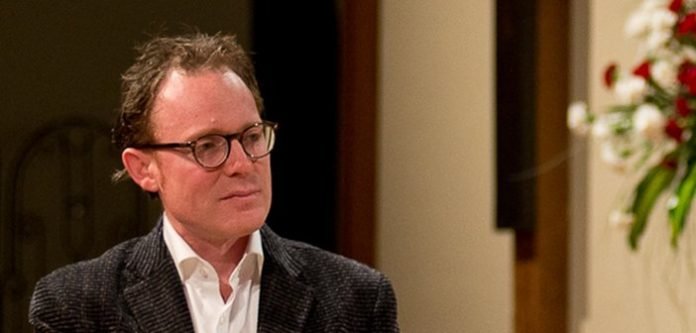In a media release, Early Music Vancouver (EMV) has announced executive and artistic director Matthew White will depart in October to take on the role of CEO at the Victoria Symphony.
“After eight years leading EMV, Matthew White leaves the organization flourishing and in excellent organizational health,” said board president Fran Watters. “Under his leadership, EMV has enjoyed tremendous growth and success, and we can look forward to planning our next steps with confidence.”
Since 2012, White has played a central role in more than doubling EMV’s budget and administrative capacity as well as in dramatically growing EMV’s audience. EMV now offers an ambitious program each year, presenting and producing between 40-50 concerts featuring local, regional and guest artists.
In 2016, Matthew began the initiative for EMV to take on the management and administration of the Pacific Baroque Orchestra (PBO) as a fully integrated division of its operations. Most recently, under his leadership, EMV created the Pacific Baroque Series in Victoria to be a second major regional platform for the PBO and other large-scale EMV productions.
Calling it the highlight of his professional life so far, White is proud of the success EMV has seen in recent years.
“I firmly believe EMV is poised for continued growth and success, and I look forward to many years of collaborating further together in my new position at the Victoria Symphony,” he says. “I will miss working daily with my extremely capable colleagues on the EMV staff, EMV’s generous and effective Board, as well as with all of EMV’s donors and patrons. This transition will be made easier because I am remaining so close, and I will do what I can to support the organization moving forward. EMV is forever going to feel like family.”
EMV has initiated a search for White’s replacement with no timeline given to finding a replacement, although White will assist with the transition.
Founded in 1970, Early Music Vancouver has a long-standing reputation for the presentation, production and study of classical and traditional repertoires using “historically informed performance practices.” These practices encompass two key aspects: the application of the stylistic and technical aspects of performance, known as performance practice, and the use of period instruments, which may be reproductions of historical instruments that were in use at the time of the original composition.

